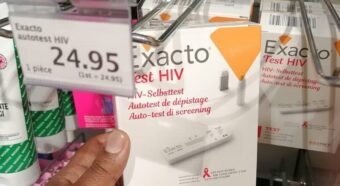OIG Reports Three African Countries for Sexual Exploitation and Abuse
- June 29, 2023
- Africa / OIG
- By Paul Nesara
- Read in French

Summary:
The Office of the Inspector General (OIG) released three audit findings for Global Fund (GF)- supported programs in Uganda, South Africa, and Zimbabwe pointing out malfeasant conduct among recipients of GF resources in these countries; in violation of the GF’s Operational Framework for all the programs that receive GF support. At the time of publication of this summary, except for Zimbabwe, the Country Coordinating Mechanisms (CCMs) for Uganda and South Africa had shared their reflections on the OIG findings.
OIG findings
On 19 May 2023, the OIG published three audit reports on Sexual Exploitation and Abuse (SEA) in GF-supported programs in Uganda, South Africa, and Zimbabwe, respectively. Between 2019 and 2020, the OIG reported the following SEA:
South Africa: a Sub-Recipient (SR) executive abused his position of power by sexually exploiting, abusing, and harassing at least eight staff and program beneficiaries.
Uganda: an SR employee working on an Adolescent Girls and Young Women program allegedly coerced, sexually exploited, and abused at least three beneficiaries of GF-supported activities.
Zimbabwe: a Ministry of Health employee sexually exploited a vulnerable beneficiary at one of the referral rural hospitals.
All three incidents were subsequently reported to GF in 2021.
Global Fund’s Operational Framework on the Protection from Sexual Exploitation and Abuse, Sexual Harassment, and Related Abuse of Power
The Global Fund’s Operational Framework on the Protection from Sexual Exploitation and Abuse, Sexual Harassment, and Related Abuse of Power (PSEAH) is designed to protect beneficiaries and service providers from abuse. The framework was published in 2021 and aims to promote the integration of PSEAH in risk management, implementer capacity building, and program design. In line with the GF processes, where a SEA incident has been raised, the Principal Recipient (PR) or SR should take adequate actions to address the issue and, at the same time Click & Tweet! , promptly report these allegations to the GF as required by the Code of Conduct for Recipients.
It is to be noted that, the Operational Framework on PSEAH was introduced in 2021 after the incidents had already happened. This was also at a time when it was not adequately integrated in risk management at the implementer level to effectively respond to SEAH.
A Reflection on the OIG Findings
The African continent does not condone SEAH and strongly deplores these acts in every sense. Indeed, SEAH has no place in the continent, and the war against HIV, TB, and malaria can only be won if beneficiaries and service providers are respected and accorded every opportunity, without fear or prejudice, to access or deliver health services. As the African Constituencies, we applaud the OIG on these findings and hope that justice will prevail for the survivors.
Uganda and South Africa also reiterated their concerns and will endeavour to ensure that implementers are capacitated on the SEAH Framework.
The Uganda and Zimbabwe events coincidentally happened at the height of the COVID-19 pandemic, a period when some vulnerable populations, particularly the girl child and women, experienced increased cases of gender-based violence and abuse.
Common Findings of the OIG on Systemic Gaps at the Level of Principal Recipients and Sub-Recipients
The OIG had to make its own investigations to promote due process, ensure action was taken against implicated parties, and improve processes and controls because:
The PRs/SRs’ investigations were not broad enough to interview survivors and witnesses of the incidents to get first-hand accounts.
The PRs/SRs lacked documentation of their investigative processes, thus rendering their attempts less appealing to the OIG.
The PRs/SRs failed in timely reporting of the incidents to the GF, thereby, likely prolonging trauma and emotional suffering of survivors.
Even where a report was made, it was not through the outlined wrongdoing reporting channels and could have compromised the due process.
The above point towards operational issues the GF will need to address. The OIG can only reach out to a fraction of those who reach out to them. Hence, building a critical mass at the local reporting level could expedite investigations.
OIG Findings – Some Concerns
What is unclear from the findings is what constitutes a reporting of SEAH. Is it when a word is passed on to any PR/SR staff member or it is when a report is made through the laid-out systems?
In the current GF procedures, it is not clear whether the SR escalates issues directly to the GF or the reporting must go through the PR, a point for clarification the Uganda SR raised.
Additionally, the Code of Conduct for Recipients states that the Country Coordinating Mechanism (CCM) is responsible for providing oversight of the Program supported by Global Fund Resources, including compliance. The OIG interpretation of the reporting process is silent on the role the CCM could have played in the nexus. In any case, the Uganda and South Africa incidents clearly expose a serious gap in reporting a SEAH incident to GF.
Recommendations for Strengthening Implementation of PSEAH
Capacity Building in Investigation and Process Documentation
The PR/SR management responses point towards some deficiencies in capacity to systematically investigate and document the due process. Hence, It is important that GF builds the capacity of CCMs, PRs, and SRs on the PSEAH Framework systematically. Thanks to the CCMs for Uganda and South Africa who have already taken the initiatives to ensure new SRs sign into the framework, sensitisation is escalated, and that PSEAH components are integrated in the SR assessment frameworks. Already, Ghana CCM has set up a network to champion PSEAH in the country, including promoting SEAH-free environment.
Enhancing Preparedness of PSEAH at Local and National Levels
The reporting lines for escalating issues to GF will need to be methodically documented so as not to reside on the OIG alone. As awareness increases, the reported cases will certainly spike, thus warranting increased level of preparedness to effectively respond to, mitigate, or manage the trauma at national and PR level.
Timely Response under PSEAH
In addition, the Global Fund Secretariat will need to operationalise timeliness and define its meaning as a way to reduce subjectivity. Often, some cases of this nature require time to establish facts of the incident to avoid alarm and despondency while in some cases, the merit may be on the borderline of perceived, real, or actual.
Whatever is the case, some serious work lies ahead of both implementers and the GF if the PSEAH framework is to be coherently operationalised and produce the intended outcomes.
Dr Paul Nesara


